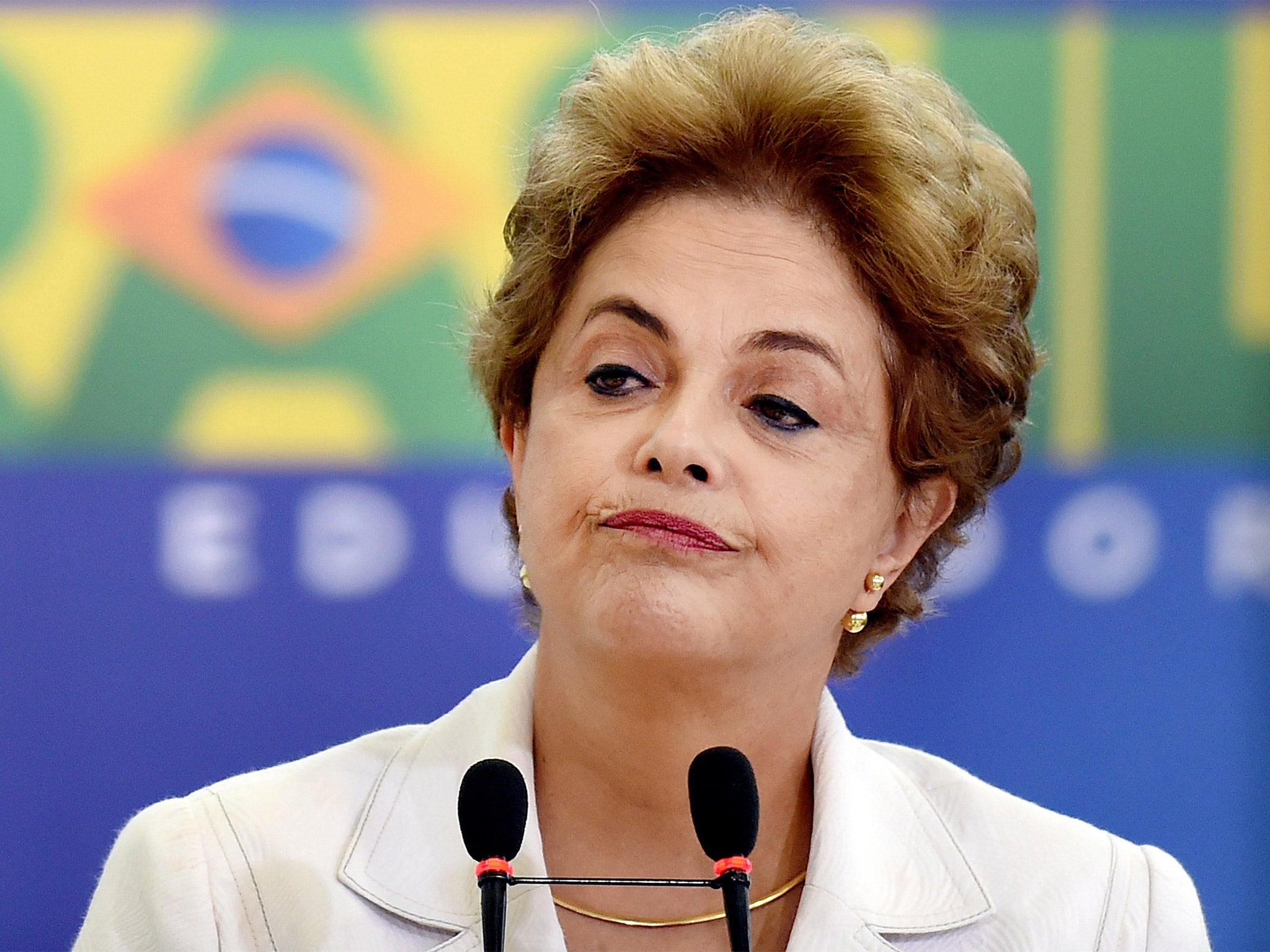Your support helps us to tell the story
From reproductive rights to climate change to Big Tech, The Independent is on the ground when the story is developing. Whether it's investigating the financials of Elon Musk's pro-Trump PAC or producing our latest documentary, 'The A Word', which shines a light on the American women fighting for reproductive rights, we know how important it is to parse out the facts from the messaging.
At such a critical moment in US history, we need reporters on the ground. Your donation allows us to keep sending journalists to speak to both sides of the story.
The Independent is trusted by Americans across the entire political spectrum. And unlike many other quality news outlets, we choose not to lock Americans out of our reporting and analysis with paywalls. We believe quality journalism should be available to everyone, paid for by those who can afford it.
Your support makes all the difference.Instead of blaming evil forces for the impeachment of Brazil's former president Dilma Rousseff and the end of Argentina's populist President Cristina Fernández de Kirchner, the left in Latin America should take a look at the economic and political car crash which is its own legacy.
The tired assertion that when a left wing government is deposed it is the fault of the right, of the US, the IMF or the World Bank could not be further from the truth.
Latin America has benefitted enormously in recent years from the boom in commodity prices, yet in Argentina, Brazil, and particularly Venezuela, this new found wealth has been squandered due to a toxic mix of economic mismanagement, populism and corruption. The failure of Venezuela to plan for falling oil prices is a key factor in its current economic chaos, with inflation running at more over 100 per cent. As a frequent visitor to the region, I have observed the downward spiral for myself.
Argentina – despite having gas, mining resources and soya crops – failed to invest this windfall in its infrastructure and to raise living standards of the poor and middle classes. The inflation level reached 40 per cent. Every year I go back to Buenos Aires, the most famous shanty town 'Villa 31', in the heart of the city, has expanded its footprint further. In this area, a cheap cocaine substitute called 'paco' can be purchased for as little as $1.
The train network in Buenos Aires would, until recently, see carriages without doors and people sitting on the roof. The Kirchner government spent more money on leasing new planes for its national flag carrier Aerolineas Argentinas than it did on building proper flood defences for the capital.
Rather than be open to the world, Argentina decided to make it harder to import goods and services. Kirchner would always attend private hospitals, but the public hospitals were left short of medicines and vital equipment. She spoke passionately about defending the peso against the dollar, but yet Aerolineas Argentinas paid for rooms in a hotel chain owned by the president, not in pesos but in US dollars. Argentines grew tired of a president who had never held a proper press conference in all the years she was in office.
Venezuela has fared even worse. During a business trip several years ago I was told not to take an evening flight out of Caracas for fear of car-jacking en route to the airport. A friend in Colombia, who is Venezuelan, told me her mother comes to visit her in Bogota and fills up suitcases with soap and shampoo as they are so difficult to find in Caracas.
Once again, this is down to a Chavez/Maduro government which has printed money and driven foreign investors away by expropriating assets from multinationals. Its opposition leader was imprisoned for attending an anti-government rally. Venezuela does not have a version of the TV programme Question Time: its own version of political programming is listening to songs about how wonderful the president is on every single TV channel, as I learned every morning in my hotel room during my stay.
And so, finally, to Brazil – another country with huge potential. It held a World Cup in 2014 where billions were spent on stadia, while millions of citizens live in terrible poverty.
Corruption in the oil industry once again was partly to blame for the impeachment of its president. Sao Paulo, where I am today, is a sprawling mess of a city with very little public transport and the rich have their own helicopters to get around. Of the world's 50 most dangerous cities, 21 are in Brazil.
It’s time for the hard left in Latin America – and our own opposition leader, who supports their thinking – to wake up and smell the coffee, for it has left a bitter taste in the mouth of ordinary Latin Americans.


Join our commenting forum
Join thought-provoking conversations, follow other Independent readers and see their replies
0Comments